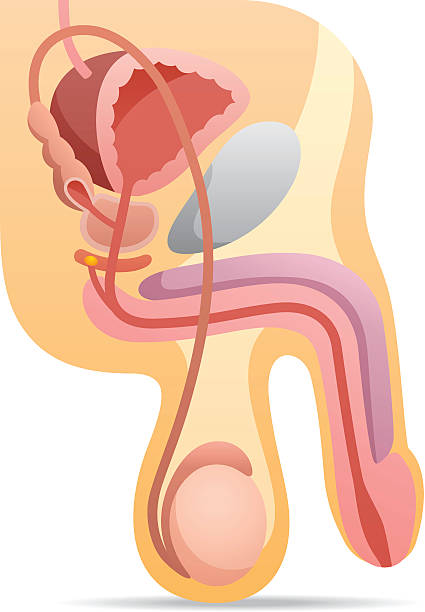Men’s Sexual Problems encompass a range of conditions that can impact sexual desire, performance, and satisfaction. Addressing these issues is crucial for maintaining overall well-being and quality of life.
Common Types of Men’s Sexual Problems
A. Erectile Dysfunction (ED)
Erectile dysfunction, or ED, is characterized by the inability to achieve or maintain an erection sufficient for sexual activity. It can be caused by various factors such as age, underlying health conditions, or psychological issues. Treatment options include medications, lifestyle changes, and therapy to address underlying causes and improve erectile function.
B. Premature Ejaculation (PE)
Premature ejaculation refers to the uncontrollable ejaculation that occurs shortly after sexual arousal and before the individual desires. It can lead to distress and dissatisfaction for both partners. Strategies for managing PE include behavioral techniques, medication, and therapy to improve ejaculatory control and sexual satisfaction.
C. Low Libido (Low Sex Drive)
Low libido, or low sex drive, is characterized by a lack of interest in sexual activity. It can be influenced by hormonal imbalances, relationship issues, or psychological factors. Addressing low libido may involve lifestyle changes, hormone therapy, or counseling to address underlying causes and increase sexual desire.
Psychological Factors and Sexual Problems
A. Stress and Anxiety
Stress and anxiety can significantly impact sexual function and performance. High levels of stress can lead to difficulties in achieving or maintaining an erection, while anxiety can contribute to premature ejaculation. Coping strategies such as relaxation techniques, mindfulness, and communication with partners can help alleviate stress and improve sexual function.
B. Depression
Depression can have a profound effect on sexual desire and arousal. Individuals with depression may experience a loss of interest in sex, decreased libido, and difficulties in achieving orgasm. Seeking support from mental health professionals and exploring treatment options such as therapy and medication can help manage depression and improve sexual function.
Lifestyle and Health Factors
A. Lifestyle Habits
Certain lifestyle habits such as diet, exercise, and sleep can impact sexual health. Poor diet, lack of exercise, and inadequate sleep can contribute to erectile dysfunction and low libido. Making positive lifestyle changes such as adopting a healthy diet, exercising regularly, and prioritizing sleep can improve sexual function and overall well-being.
B. Medical Conditions
Chronic health conditions such as diabetes, hypertension, and cardiovascular disease can affect sexual performance and libido. Managing these underlying health issues through medication, lifestyle changes, and regular medical check-ups is essential for maintaining sexual health and function.
Treatment Options
When a medical condition such as heart disease, diabetes, obesity, or depression impacts your sex life, your doctor needs to address it initially.
Your doctor may recommend lifestyle changes, like quitting smoking, reducing alcohol consumption, and incorporating regular exercise. These adjustments not only enhance overall health but also improve sexual function.
Other treatment avenues include:
- Counseling: Seeking counseling can assist in managing stress, anxiety, fear, guilt, or addressing depression and other mental health issues that may affect sexual well-being.
- Medications: There are medications available for erectile problems, often taken orally, such as Cialis, Levitra, Stendra, or Viagra. Additionally, there are injectable medications like alprostadil.
- Hormone Therapy: Testosterone replacement therapy and other hormone treatments are options for correcting imbalances that may be impacting sexual function.
- Medical Devices: Devices like vacuum erection devices can aid in achieving an erection.
- Penis Implant Surgery: In some cases, surgical implantation of devices into the penis may be recommended to address erectile dysfunction.
- Surgery: Surgical procedures can correct deformities of the penis or address other underlying anatomical issues.
- Penile Traction Therapy: This involves wearing a device on the penis to correct deformities gradually.
These treatment options cater to various aspects of sexual dysfunction and can be tailored to individual needs after consultation with a healthcare provider.
Communication and Seeking Help
A. Importance of Communication
Open communication with partners about sexual concerns is crucial for addressing sexual problems and maintaining intimacy. Breaking down stigma and barriers to discussing sexual issues can facilitate understanding and support between partners.
B. Seeking Professional Assistance
Consulting healthcare providers or specialists can provide valuable guidance and treatment options for managing sexual problems. Therapy, medication, and lifestyle interventions tailored to individual needs can help address psychological and physical factors contributing to sexual dysfunction.
Resource;
Sources:
- Weill Cornell Medicine: “5 Facts All Men Should Know About Sexual Problems and Dysfunction.”
- Merck Manual (Consumer Version): “Overview of Sexual Dysfunction in Men.”
- Duke Health: “Male Sexual Dysfunction.”
- Journal of the American Medical Association: “Male Sexual Dysfunction.”
- Mayo Clinic: “Peyronie’s Disease.”
- Cleveland Clinic: “Sexual Dysfunction,” “Sexual Dysfunction in Males: Management and Treatment.”
- Urology Care Foundation: “Erectile Dysfunction.”
- American Academy of Family Physicians: “Erectile Dysfunction.”
- American Urological Association: “Erectile Dysfunction: AUA Guideline (2018).”
- UpToDate: “Overview of male sexual dysfunction.”
- Medline Plus: “Erectile Dysfunction.”

